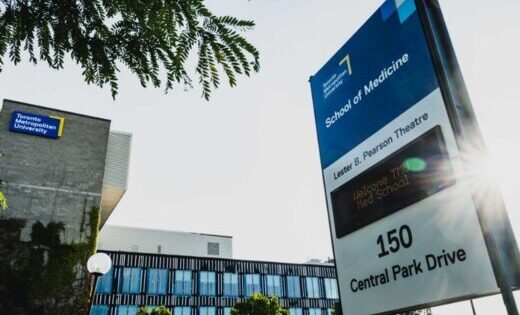BY W. GIFFORD- JONES MD & DIANA GIFFORD-JONES
Heart disease is a leading cause of death in North America. Almost half of all U.S. adults have some type of cardiovascular disease, and in Canada, a woman dies of heart disease every 20 minutes. Heart disease is not often a disease of chance or bad luck. For the most part, it is a lifestyle disease. There are things we can do to prevent it.
We write columns every week to help readers avoid becoming a statistic. The fact that omega-3 fatty acids can help make the difference between life and death has been a frequent topic. But don’t take our word for it. Take a test and find out for yourself. That’s exactly what we are doing.
The Omega-3 Index is a scientifically validated test to check your risk for heart disease. The test measures the amount of EPA and DHA, both omega-3 fatty acids, and expresses them as a percentage of the total amount of fatty acids in your red blood cells. Anything less than 4% indicates high risk. Between 4-8% signals moderate risk. Above 8% means low risk.
EPA and DHA are “good” fatty acids. They promote cardiovascular health, and are also needed for brain function, mood and joint health. There are other fatty acids in our blood, too. Omega-6 fatty acids are a type of polyunsaturated fat found in vegetable oils, nuts and seeds. Too much omega-6 can elevate your blood pressure and risk of blood clots that cause heart attacks and stroke. While omega-3s fight inflammation associated with cardiovascular disease, omega-6 fatty acids are proinflammatory. The goal is to have ample omega-3 without an excessive amount of omega-6.
Nearly all of us are failing. A Statistics Canada survey shows that 97% of Canadians are below the desirable 8% level and the average Canadian adult is at 4.5% – barely above the high-risk zone. Even when eating fish twice weekly, 93% of Canadian are below 8%. Researchers found that 95% of participants in an American cohort suffered even lower levels of omega-3s. A stunning 90% of those taking fish oil supplements didn’t score well either. Why? Fish oils are hard for our water-based bodies to absorb.
These results should be alarming. North Americans have become careless about what they eat. For instance, people say no too often to green beans, cabbage, brussels sprouts, kale and nuts. They rarely eat fatty fish such as salmon, herring, mackerel, sea bass and oysters. A good diet would be a good start.
Even if we all consumed more omega-3 fatty acids in our diet, there remains that problem of absorption – the same problem most omega-3 supplements face. Our liver and pancreas help convert fish oils into monoglyceride fats for our bodies to absorb them. Not all of us do this conversion well, especially if we are health compromised.
Researchers in Canada have developed a solution, pre-digested monoglyceride fish oil that is three times more absorbable than standard fish oil supplements. It’s called MaxSimil, and studies have shown it to result in higher Omega-3 Index scores than other forms of fish oil.
We are putting ourselves to the test. Our baseline Omega-3 Index scores are in: Diana at 5.47% and Giff at 5.56%. This is barely acceptable. And this result despite good diets plentiful in fish!
We’re now on a firm regimen of “the perfect omega” containing MaxSimil. We’ll let you know the results of our follow-up tests soon. Learn more about the Omega-3 Index and how to get a test kit at www.docgiff.com/omega.
Stay in the loop with exclusive news, stories, and insights—delivered straight to your inbox. No fluff, just real content that matters. Sign up today!
Dr. W. Gifford-Jones, MD is a graduate of the University of Toronto and the Harvard Medical School. He trained in general surgery at Strong Memorial Hospital, University of Rochester, Montreal General Hospital, McGill University and in Gynecology at Harvard. His storied medical career began as a general practitioner, ship’s surgeon, and hotel doctor. For more than 40 years, he specialized in gynecology, devoting his practice to the formative issues of women’s health. In 1975, he launched his weekly medical column that has been published by national and local Canadian and U.S. newspapers. Today, the readership remains over seven million. His advice contains a solid dose of common sense and he never sits on the fence with controversial issues. He is the author of nine books including, “The Healthy Barmaid”, his autobiography “You’re Going To Do What?”, “What I Learned as a Medical Journalist”, and “90+ How I Got There!” Many years ago, he was successful in a fight to legalize heroin to help ease the pain of terminal cancer patients. His foundation at that time donated $500,000 to establish the Gifford-Jones Professorship in Pain Control and Palliative Care at the University of Toronto Medical School. At 93 years of age he rappelled from the top of Toronto’s City Hall (30 stories) to raise funds for children with a life-threatening disease through the Make-a-Wish Foundation. Diana Gifford-Jones, the daughter of W. Gifford-Jones, MD, Diana has extensive global experience in health and healthcare policy. Diana is Special Advisor with The Aga Khan University, which operates 2 quaternary care hospitals and numerous secondary hospitals, medical centres, pharmacies, and laboratories in South Asia and Africa. She worked for ten years in the Human Development sectors at the World Bank, including health policy and economics, nutrition, and population health. For over a decade at The Conference Board of Canada, she managed four health-related executive networks, including the Roundtable on Socio-Economic Determinants of Health, the Centre for Chronic Disease Prevention and Management, the Canadian Centre for Environmental Health, and the Centre for Health System Design and Management. Her master’s degree in public policy at Harvard University’s Kennedy School of Government included coursework at Harvard Medical School. She is also a graduate of Wellesley College. She has extensive experience with Canadian universities, including at Carleton University, where she was the Executive Director of the Global Academy. She lived and worked in Japan for four years and speaks Japanese fluently. Diana has the designation as a certified Chartered Director from The Directors College, a joint venture of The Conference Board of Canada and McMaster University. She has recently published a book on the natural health philosophy of W. Gifford-Jones, called No Nonsense Health – Naturally!












